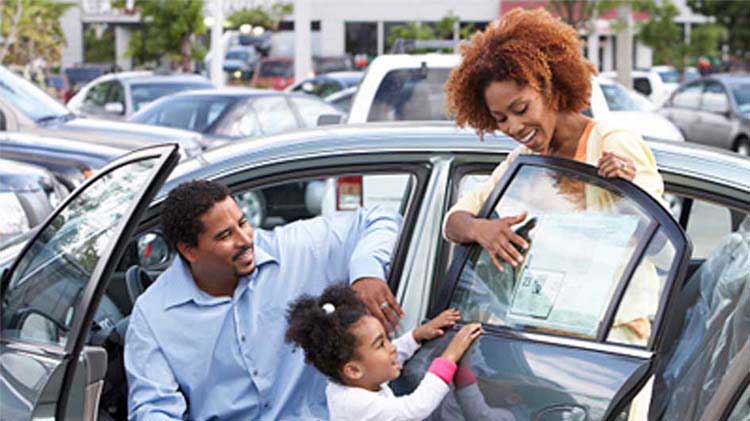Should I buy or lease a car?
Check out our pros and cons list to help you make an informed decision.
There are many factors that can go into the decision of whether to lease or buy a car, truck or SUV. A primary consideration is how you intend to use the new vehicle. Is it an addition to your current fleet? Or is it replacing an older vehicle? Another factor to weigh is whether the vehicle will be used as a daily commute driver, or more likely to be what we all know as a "grocery-getter"?
Then there's the vehicle for a new teen driver, or one headed off to college. These are often used car purchases and, by default, not necessarily a lease option.
Consider addressing those questions before you begin your search for a new or used car, truck or SUV.
In general, some people prefer the convenience a lease offers in being able to walk away from the vehicle after a certain amount of time. There are restrictions, however, such as annual mileage and wear-and-tear on the leased vehicle.
Others enjoy the idea of eventually owning the vehicle outright. There's something to be said for having the option of one day being able to use the equity in your purchased car, truck or SUV when you go to trade for a new one. Either way, your credit and budget will factor into this decision.
| Buying | Leasing | |
| Payments | Cash in full or monthly loan payment | Monthly for fixed time period |
| Ownership | Yours after loan is paid off | Dealer |
| Terms | Average loan term: 69 months | Average lease term: 36 months |
| Fees | No additional fees outside of up-front costs | Additional fees for excess mileage, customizations, extra wear and tear, acquisition and/or cleaning |
| Mileage | Unlimited mileage | Limited mileage |
| Customizing | Allowed | Allowed but must be reverted to salable condition and any residual damage from customizations must be fixed before car is returned |
| Early Termination | No early termination fee, can sell or trade car anytime | Early termination fee may apply |
Pros and cons of buying a car
Pros with buying
- Ability to customize the vehicle
- Flexibility to sell when you want
- Eventually you will be payment free
- Lower insurance premiums
- Can build equity
- Lower costs overall compared to leasing
Cons with buying
- Trade-in and selling hassles
- Higher maintenance costs
- Rapid depreciation: 10% to 20% each year
- Higher loan payments
Pros and cons of leasing a car
Pros with leasing
- Lower average monthly payments than an auto loan
- Lower down payment
- Taxes – No upfront sales tax payment and there may be tax advantages for business use
- Ability to drive a new car every few years
- Most repairs are covered by the factory warranty
- Lease may cover scheduled maintenance, like oil changes
Cons with Leasing
- Limited mileage – typically 12,500 to 15,000 per year
- Early termination can be costly
- Potential penalties for general wear and tear
- Expendable items, like tires, not covered by lease
Some other important considerations
- How long do I want to keep the vehicle?
- How many miles do I drive annually?
- What is my monthly budget?
- Can I afford higher insurance premiums?
- Will my lifestyle choices, such as pets or children, affect the car's condition?
Calculate the difference
Use this lease vs buy calculator to help you arrive at your decision on whether it's better to lease or buy a car, truck or SUV. Above all, avoid overextending yourself. Whether you end up leasing or buying that new vehicle, there are far too many temptations to go for more vehicle than you truly can afford. Go in with a clear plan and budget and stick to it!
After you decide what is the best car purchase option for you, don’t forget to contact your State Farm® agent to insure your new car.




